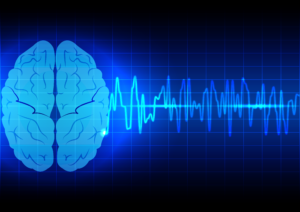 Without taking care of your brain how can you expect to perform at your cognitive best? As recently as ten years ago, depression, anxiety, and memory problems were exclusively labeled as a chemical imbalance in the brain and treated as such. We know better now, and we are striving to do better. The generally held concept of depression as a “chemical imbalance” has essentially been debunked. Rather than an imbalance of serotonin, dopamine, or norepinephrine (neurotransmitters), depression and anxiety actually begin further up the chain of events in our brains. Depression is more directly linked to effects of chronic inflammation on the brain. Thus, the emphasis is shifting. Instead of only antidepressants (SSRI, SNRI, TCAs), we are including adjunctive use of supplements to decrease brain inflammation.
Without taking care of your brain how can you expect to perform at your cognitive best? As recently as ten years ago, depression, anxiety, and memory problems were exclusively labeled as a chemical imbalance in the brain and treated as such. We know better now, and we are striving to do better. The generally held concept of depression as a “chemical imbalance” has essentially been debunked. Rather than an imbalance of serotonin, dopamine, or norepinephrine (neurotransmitters), depression and anxiety actually begin further up the chain of events in our brains. Depression is more directly linked to effects of chronic inflammation on the brain. Thus, the emphasis is shifting. Instead of only antidepressants (SSRI, SNRI, TCAs), we are including adjunctive use of supplements to decrease brain inflammation.
The research currently being done supports this claim. A paper published in the American Journal of Psychiatry June 1, 2016 concluded that there was strong evidence to support adjunctive use of SAMe, methylfolate, Omega-3, and vitamin D with antidepressants to reduce depressive symptoms.
My 35 years of clinical experience has supported these findings, so I will share my recommendations for supplements to protect your brain much like a cardiologist protects the heart from the effects of inflammation. As with our heart, it’s more important to treat the root cause of anxiety and depression- inflammation of the brain, than just the symptoms.
There are a lot of options for supplements. To simplify the process, I broke my recommendations down into 4 5 core basics, and a list of additional supplements to consider.
THE 5 CORE BASICS
-
METHYLFOLATE:
Methylfolate is a B vitamin, and it supports the brain and aids in manufacturing DNA, neurotransmitters, and removal of cellular waste products. Methylfolate stabilizes our mood through its role in neurotransmitter synthesis and production. Patients taking 15 mg per day showed significant improvement in response rate and the degree of change in their depression scores as compared to SSRI therapy plus placebo.
Methylfolate is the most biologically available form of folate, AKA folic acid. Forty percent (40%!!) of people can’t absorb regular folate because of a genetic mutation in their MTHFR gene (methylenetetrahydrofolate reductase), which prevents absorption of regular folate. There is a blood test to confirm the genetic mutation, but I do not require it. I recommend Methylfolate for all patients who need folate, regardless of the presence of mutation. So what is the benefit of the blood test? Some insurance companies will reimburse for purchase of methylfolate in the presence of this genetic mutation.
The daily recommended dose is 7.5 mg to 15 mg daily.
Which ones:
Deplin 15 mg (http://www.deplin.com)
5-MTHF 15 mg Thorne Research
-
VITAMIN D3:
Vitamin D3 is basically a neuro-steroid. Vitamin D receptors reside in areas of the brain involved with depression. Vitamin D assists the body with making neurotransmitters, decreasing stress response, and ultimately reducing inflammation in the body and the brain. I see Vitamin D3 deficiency most commonly in my practice and 75% of the US teen and adult population is deficient in vitamin D. People with vitamin D levels below 20 had an 85% increased risk of depression than those whose levels were higher than 30!
Laboratory testing is necessary for proper monitoring of vitamin D3 treatment and replacement. I attempt to maintain levels of 35 to 60. It is possible to overdo vitamin D supplements, so I strongly urge you to establish the dosages based on the lab values of (25)-hydroxy vitamin D. Repeat the lab three months after initiation of vitamin D3 supplements to make sure you are within appropriate limits. With that said, 2000 international units daily is a reasonable starting dose but make sure to retest to ensure proper dosing.
The daily recommended dose to initiate vitamin D3 supplementation is 2000 international units a day. 5000-10000 iU may be necessary to treat D3 deficiency but make sure you follow up with your prescribing doctor.
Which ones:
Pure Encapsulations
Thorne Research – Vitamin D/K2 Liquid
-
OMEGA-3 FATTY ACIDS:
The majority of American diets lack healthy fats including the Omega-3 fatty acids. Cardiologists have long recommended Omega-3s for their role in overall heart health because of their strong anti-inflammatory properties. They have now become a cornerstone in maintaining brain and mental health. A recent meta-analysis demonstrated significant reduction in depression beyond placebo with the use of Omega-3 fatty acids.
If you take no other supplements for your mental and cognitive health the Omega-3s are an absolute must!
Omega-3s are essential for fighting inflammation. Again, inflammation is the central contributor to depression, anxiety, diabetes, obesity, heart disease, cancer, and autoimmune diseases.
There are three Omega-3s: EPA (Eicosapentaenoic Acid), DHA (Docosahexaenoic Acid), and ALA (Alpha-linolenic Acid). We find EPAs and DHAs in animal based fats and ALAs are plant based, found in foods like nuts and flaxseed. Although beneficial for general health, ALAs are not effective as an adjunct therapy for depression and anxiety. For mental health, EPA dominant formulas are essential as DHA alone is not effective. An omega-3 formula with a 2:1 to 5:1 ratio of EPA to DHA is recommended.
The best sources of omega-3’s are from wild Alaskan salmon, sardines, skipjack tuna, and anchovies. There is the risk of foreign contaminants like PCPs and mercury in seafood. Small fish such as sardines and anchovies are less likely to contain contaminants and high quality fish oil is specifically filtered and distilled to eliminate them. Fish oil supplements are the next best source.
Be aware that there can be side effects of long-term supplementation including increased bleeding. (So be cautious if you are taking blood thinners etc., and make sure you let your Doctor know what supplements you are on.)
My daily recommended dose is 1500 mg to 2000 mg per day with depression and anxiety. Higher doses can be used effectively for bipolar disorder.
Which ones:
Nordic Naturals
Central Market Store Brand
Whole Foods Store Brand
Kirkland Store Brand
-
B-COMPLEX WITH MINERALS:
Low levels of B vitamins are associated with mood disorders. The brain needs high amounts of B vitamins in order to repair and maintain neurotransmitter function. Stress depletes B vitamins quickly. Additionally, these vitamins are needed for healthy hair, skin, adrenal function, liver function, and to help the nervous system. The B vitamins include B1 (thiamine), B2 (riboflavin), B3 (niacin), B6 (pyridoxine), B9 (folate), vitamin B12, biotin, and B5 (pantothenic acid). Minerals such as magnesium, zinc, iodine, and selenium are necessary for the body’s maximum function.
Which ones:
MultiThera1 with Vit K by Prothera
5. PROBIOTICS:
Probiotics are “good” bacteria that have significant anti-inflammatory effects. Strains of bifidobacterium and lactobacillus have shown to decrease depressive symptoms. We are only beginning to understand the role of the “gut-brain” axis and the links between good gastro-intestinal health and the maintenance of good mental health and overall well-being. In fact there was a recent study that showed a link to OCD and the gut microbiome (bacteria).
Which Ones:
Ther-Biotic by Klaire Labs
Prescript Assist
ADDITIONAL SUPPLEMENTS FOR CONSIDERATION
SAMe:
Like folate, SAMe assists the body in the production of neurotransmitters. It has been available in Europe by prescription since the 1970s for treatment of depression. In a 2013 U.S. study, people who took SAMe regularly showed significant decreases in depression rating scales and only a 36% incidence of remission. Be aware! There have been some reports of irritability with use and it may cause hypomania in those with bipolar disorder.
Tryptophan or 5 – HTTP:
5-HTTP is an amino acid that is a precursor to the neurotransmitter serotonin. The overall evidence of its usefulness and depression doesn’t seem to be all that robust. Use caution when you take this with a prescription antidepressant as it can cause dangerous side effects called serotonin syndrome. I do not prescribe this to patients already taking antidepressants.
Magnesium:
We see magnesium deficiency in 80% of depressed individuals and magnesium plays an important role in anxiety by disrupting the body’s stress response systems.
The recommended dose is 150-800 mg per day. If you are using magnesium to treat anxiety, irritability, insomnia, or premenstrual symptoms, start at 300 mg per day. I prefer magnesium glycinate unless there’s a problem with constipation. Magnesium oxide or magnesium citrate can provide a laxative effect for some.
Zinc:
Zinc is a mineral essential for controlling the body’s reaction and response to stress. Zinc deficiency leads to symptoms of depression, difficulties with memory and learning, and even aggression.
Recommended dose is 15 to 30 mg per day.
L-Theanine:
L-theanine is an amino acid that has a calming effect by triggering the release of GABA. It is found primarily in green tea and enhances alpha wave production, which promotes a relaxed but focused mindset.
Recommended dose is 100 to 200 mg twice per day.
Curcumin:
Curcumin, found in the spice turmeric has known anti-inflammatory and neuro-protective properties. Recent studies have shown its effectiveness in treating depression.
Recommended dose: 1000 mg curcumin extract daily
Which one: Meriva 500 SF (Soy Free) By Thorne
This is by no means a comprehensive list. Before starting any supplementation regimen, it is important to consult with your physician. You may also wish to order diagnostic blood work to determine appropriate dosage.
To make it easier for you to find the supplements I discussed in this article, please visit https://us.fullscript.com/welcome/drkkesler. You will find my recommendations under Cognitive Health.
If you have any questions, or would like a more in depth discussion regarding your needs, email us at [email protected].
Links:
http://ajp.psychiatryonline.org/doi/abs/10.1176/appi.ajp.2016.15091228
https://www.ncbi.nlm.nih.gov/pubmed/27788314
http://www.nature.com/nrc/journal/v13/n8/fig_tab/nrc3557_F3.html
http://www.everydayhealth.com/news/illnesses-linked-vitamin-d-deficiency/
http://jamanetwork.com/journals/jamainternalmedicine/fullarticle/414878
http://journals.sagepub.com/doi/abs/10.1177/0269881116686883

